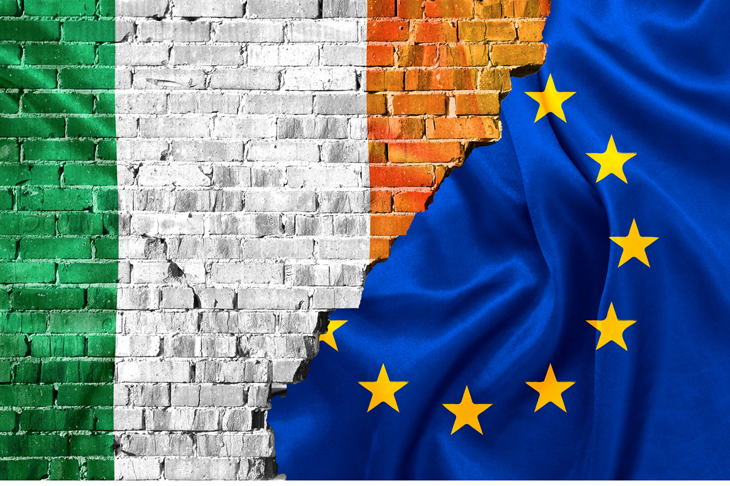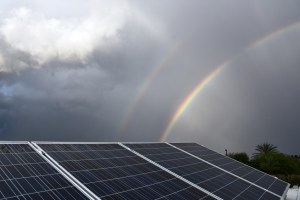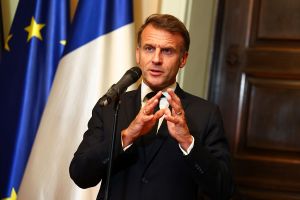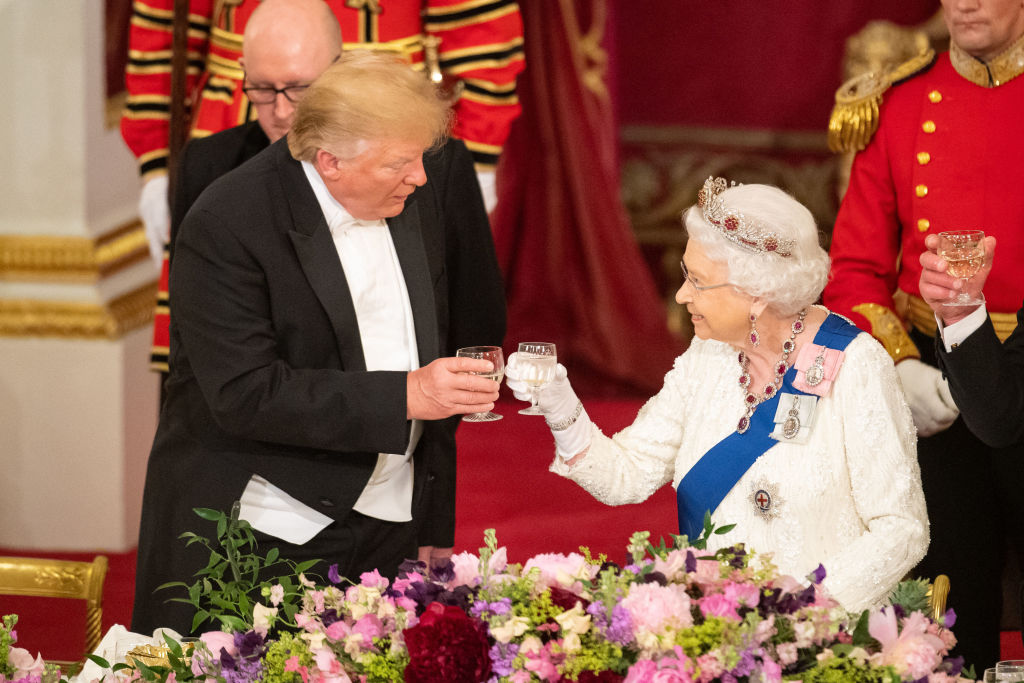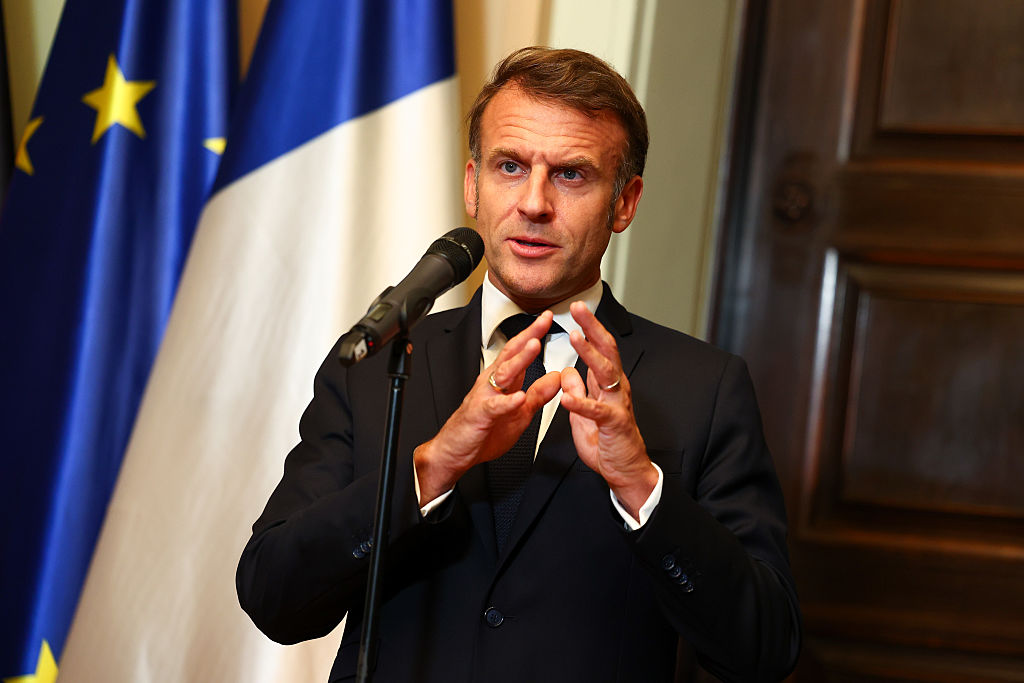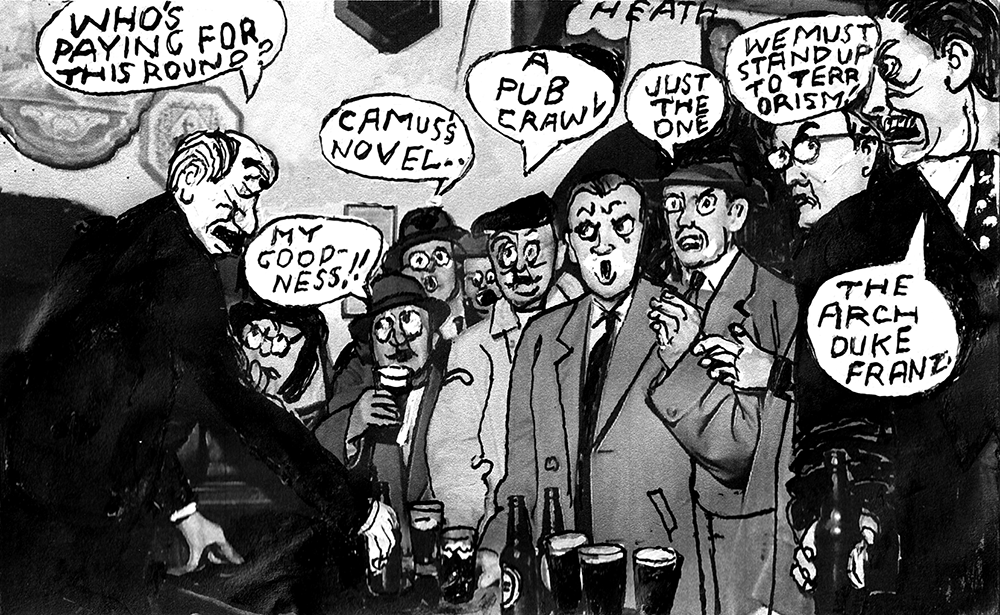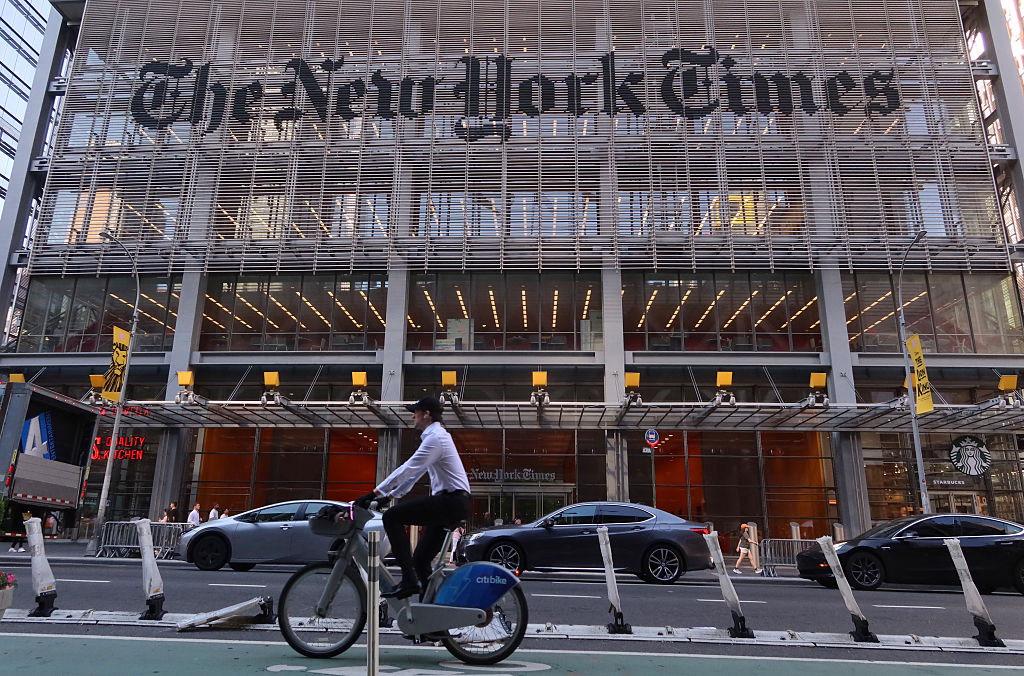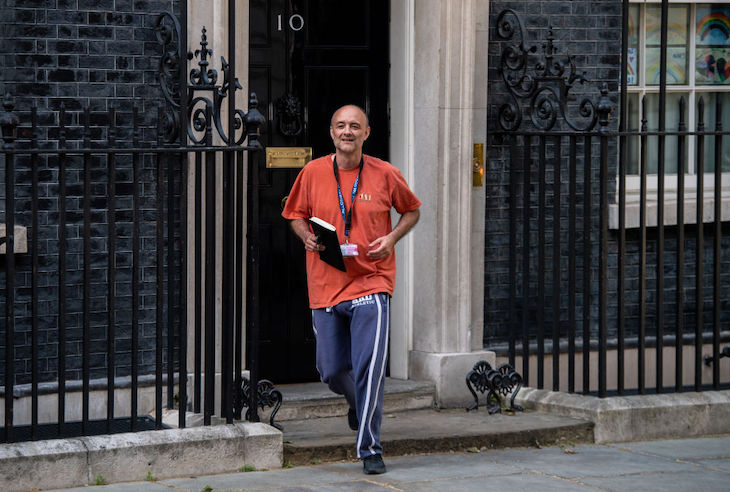In February, I spoke at the first ‘Irexit’ public meeting in Dublin, a discussion about options for Ireland in the event of various eventualities arising from Brexit or some more fundamental disintegration of the EU. Nigel Farage was among the speakers, so what might otherwise have been ignored became the focus of finger-wagging by the media ayatollahs.
Punctuating the speeches were videos about Ireland’s economy, resources, history–in-the-EU and so forth. One featured a classic Irish rock song by the venerable fivesome Horslips, a rock band of the 1970s. The song was ‘Dearg Doom’ (Red Destroyer), which turns on a riff based on an Irish march, ‘O’Neill’s Cavalry’.
After the Irexit event, the band ‘took to’ their Facebook page to dissociate themselves from this borrowing of a tune earlier borrowed by themselves: ‘Some of you may have spotted that the saddos in the Eirexit [sic] conference had the feckin’ temerity to use “Dearg Doom” as a soundtrack and to show the image of the album cover on the big screen. Needless to say, they didn’t ask us. If they had, we’d have pointed out that we wouldn’t piss on them if they were on fire — which they’re unlikely to be, anytime soon. Five hundred damp, self-regarding eejits being patronised by the Crazy Frog lookalike Nigel Farage isn’t going to set the heather blazing in the near future.’
‘Horslips stood for a hopeful, outward-looking, inclusive vision of Ireland with plenty of drink and a blue Range Rover. This lot stand for a diminished, fearful, xenophobic state. Little Irelanders.’
The band’s diatribe concluded: ‘Checking out whether we can do them for copyright infringement.’
The media went delirious with mirth and gave Horslips the floor for a week. I’ve known members of the band for decades and up to then had regarded them as a pretty sane bunch. Their intervention here was a particularly weird example of a new tendency not confined to Ireland: pop culture stalwarts pushing themselves to the cutting edge of consensus, standing four-square behind such as the, eh, European Commission, which beggared half of Europe in the decade just past.
This episode is emblematic of the broad Irish response to all things Brexit. A strange new groupthink has dissolved the lines between the establishment and the one-time ‘rebels’ — and the befuddled watching creatures look from one to the other and are unable to say which is which. The climate persisting in Britain since 24 June 2016 has completely taken Ireland in its grip and rendered common sense a rarity.
From the outset, the Irish media, taking its cue from ‘quality’ UK sources, adopted an anti-Brexit position, treating the result as illegitimate, and speaking of those who had voted to leave the EU as deluded, ignorant, misinformed dupes of Boris and Nigel. Any attempts at other perspectives were immediately highlighted as evidence of knuckle-dragging proclivities.
From a practical viewpoint, the Irish attitude to Brexit is akin to one of those situations in the World Cup qualifiers when you’re waiting on someone else’s result to know if you’ve dead or alive. It is true that Ireland’s current leadership is pretty useless, and that the possibility for open discussion is radically forestalled by a media culture actually far more ideological than that of the UK. But even if it were otherwise, Ireland would still be powerless. We must wait for the other games to play out before knowing what our future is.
This feeling of impotence combines with other odd tendencies. There is probably, deeper in the mix, an element of schadenfreude rooted in historical memory. Just short of a century ago, when Ireland exited the British empire, the world, looking to the countenance of London for its cues, left Paddy the Irishman swinging in the wind. Ireland spent four economically friendless decades before getting her head above the water — haemorrhaging her young population and digging ever deeper into a hole of isolationism and navel-gazing.
The current sense, therefore, that the UK is about to walk off a cliff in the name of a principled independence is secretly relished to the full in her nearest former outpost. The piquancies of the Ancient Enemy toying with what ‘everyone’ ‘knows’ to be economic and political lunacy are far from lost on a people now smug in their new dependencies on Big Tech and the EU.
We enjoy being the good boys of Europe while the Brits languish in the dunce’s corner. But the much-canvassed idea of the Irish as a nation of ‘Europhiles’ is a long way off. The founders of the EU project (Monnet, De Gasperi, Adenauer, Schuman) are by no means household names in Dublin or Doolin. We were always in ‘Europe’ for the money, and when it stopped flowing we shot down two EU treaties in the Noughties, in each case accepting our error and reversing the decision second time around. In 2010, when the Troika arrived to audit our books for the EU Commission, ECB and IMF, virtually everyone turned overnight into a Europhobe, observing from behind twitching curtains Ajai Chopra and his henchmen moving through the streets of Dublin, as though they were the ghosts of the Cromwellians.
Had an Irexit-promoting party contested the 2011 election it would have swept the board. Instead, we got Enda Kenny, the yes-man from Del Monte who liked to say ‘absolutely’. Now, having picked our own pockets for a decade, we’ve managed to convince ourselves that we pulled ourselves back on to the pig’s back by our bootstraps, with a €200 billion debt we hardly ever mention.
Ultimately, Irish people don’t really know what they’re supposed to think about Brexit. The rebel spirit, which lies half–dormant underneath layers of propaganda and fear-mongering, whispers that we should support the right of British people to self–determination, but the official culture is deeply disapproving of such heresy, so everyone just keeps mum.
Media eye-rolling notwithstanding, the idea of Ireland joining with Britain in leaving the EU is not on its face such a ridiculous idea. The UK is by far Ireland’s most significant individual trading partner for both exports and imports. Roughly one-third of Ireland’s trade in goods and services (aggregating imports and exports) is with EU countries, excluding the UK. Two-thirds of her trade is with the rest of the world, of which the UK portion is approximately one-third. The trouble is that we have no leaders left capable of taking us through such a process or willing even to contemplate rocking the boat. Hence the smugness: we are certain our course is the right one because, well, we have no choice. Nearly half a century of renewed dependency has left us with a cadre of political leaders incapable of being anything but messengers. They know no other way of running Ireland except in dependent relationships with larger entities.
The Irish economy is now constructed so that we survive essentially on the crumbs from the global table, our giveaway corporate tax rate serving as the strongest economic trump card. Our ‘leaders’ exist, it seems, to nod in response to the proposals of their overlords; saying exactly what they are instructed to say.
Secretly, Brexit has a lot more Irish supporters than you might gather from relying on the formal conversation, and the topic of demographic change is invariably high in the mix. The levels of immigration currently into Ireland are not (yet) at the level of other European countries, but they are disquieting enough for what had long been a relatively homogeneous culture. A cautious estimate suggests that one in five of the Irish population may now be non-nationals, a tripling in a decade. There are now more Poles in Ireland than migrants from the UK. Among the non-European categories, the most significant numbers are asylum seekers from Africa, Asia and South America. Many small Irish towns, in the least likely places, now play host to immigrant populations amounting to a quarter or a third. Although the influx has declined slightly since the heyday of the Celtic Tiger, there is still a steady growth, with significant numbers arriving more recently from Muslim countries like Pakistan and Bangladesh. Irish politicians and journalists talk a lot about the ‘crisis of homelessness’ but never mention the real reasons.
Due to the clampdown of discussion, these issues have not as yet erupted in the public square, but in the bars and cafés of Ireland’s cities and larger towns, the changing profile of the population is a topic of agitated conversation. Anyone seeking to raise these matters centrally, other than in the guise of an unequivocal endorsement of what’s going down, is dismissed as a xenophobe or a racist. There is therefore a slight sense that people have begin to hope that, somewhere deep in the mix of Brexit complexity, something may emerge to create a sea change — without, of course, our having to do or say anything that might make us appear ‘racist’.
Then there is the more immediate problem of what is called ‘the Irish border’ — really a UK border on the island of Ireland. Although the issue was barely mentioned during the June 2016 referendum, there has been a growing sense of the intractability of the issue: that, given the real-politik of the situation, there is no possibility of a long-term solution other than a restored hard border between the ‘Six Counties’ and the Republic. The favoured media scare in this regard is that it would result in renewed ‘patriotic’ activity, a non-sequitur on its face. Periodic proposals falling short of the hard border outcome seem encouraging until you consider that they amount to something more like Not-Brexit than Brexit.
Ultimately, the hard questions will have to be furnished with hard answers. Either Britain will exit or it will not. Paddy the Irishman is just glad that for once the joke is not on him. He clings to nurse for fear of something worse and — for the moment anyway — thanks his lucky stars that his name is not John Bull.
This article was originally published in The Spectator magazine.



